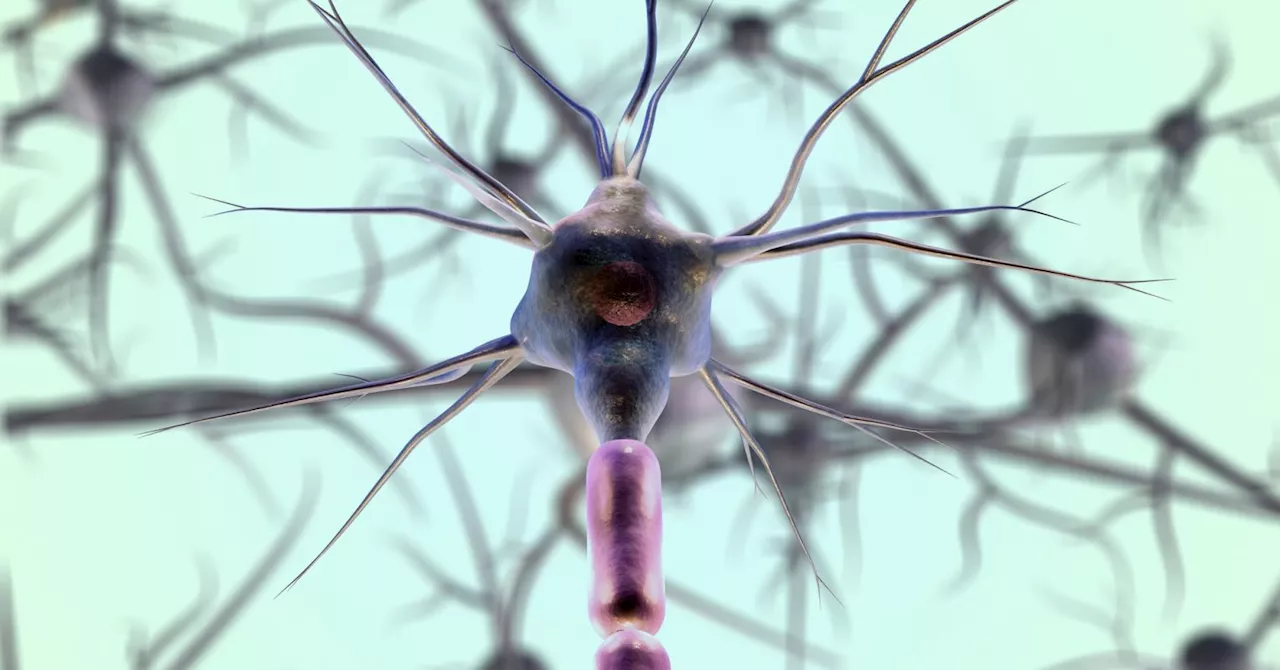A new study from Turku PET Centre in Finland suggests that changes in the functioning of opioid neurotransmitters in the brain could be a key factor in the development of anorexia nervosa. Researchers found that the brain's opioidergic tone was elevated in patients with anorexia compared to healthy individuals. This finding supports the idea that these molecules may play a role in regulating both appetite loss and increase.
A study conducted at Turku PET Centre in Finland showed that changes in the functioning of opioid neurotransmitters in the brain may underlie anorexia.
"Opioid neurotransmission regulates appetite and pleasure in the brain. In patients with anorexia nervosa, the brain's opioidergic tone was elevated in comparison with healthy control subjects. Previously we have shown that in obese patients the activity of the tone of this system is lowered. It is likely that the actions of these molecules regulate both the loss and increase in appetite," says Professor Pirjo Nuutila from the University of Turku, Finland.
"The brains of patients with anorexia nervosa used a similar amount of glucose as the brains of the healthy control subjects. Although being underweight burdens physiology in many ways, the brain tries to protect itself and maintain its ability to function for as long as possible," says Professor Lauri Nummenmaa from Turku PET Centre and continues:
The study was carried out in collaboration with the Turku University Hospital and Pusan National University in South Korea. The brains of patients with anorexia nervosa and the healthy control subjects were imaged using positron emission tomography at Turku PET Centre.Kyoungjune Pak, Jouni Tuisku, Henry K. Karlsson, Jussi Hirvonen, Eleni Rebelos, Laura Pekkarinen, Lihua Sun, Aino Latva-Rasku, Semi Helin, Johan Rajander, Max Karukivi, Pirjo Nuutila, Lauri Nummenmaa.
ANOREXIA NEUROTRANSMITTERS OPIOIDS BRAIN FUNCTION MENTAL HEALTH
United States Latest News, United States Headlines
Similar News:You can also read news stories similar to this one that we have collected from other news sources.
 Brain Activity in Teens May Predict Depression RiskA new study from the University of Calgary has found that adolescents who are at high risk for depression may have different brain activity patterns compared to those at lower risk. Researchers observed 145 teenagers and found that those with a muted response to winning during gambling-like games were more likely to experience a first depressive episode within 18 months.
Brain Activity in Teens May Predict Depression RiskA new study from the University of Calgary has found that adolescents who are at high risk for depression may have different brain activity patterns compared to those at lower risk. Researchers observed 145 teenagers and found that those with a muted response to winning during gambling-like games were more likely to experience a first depressive episode within 18 months.
Read more »
 Electronic Scalp Tattoo Monitors Brain Activity ContinuouslyScientists have created a groundbreaking electronic tattoo that can be printed directly onto the scalp to monitor brain activity noninvasively for extended periods. This technology offers a comfortable and reliable alternative to traditional EEG methods.
Electronic Scalp Tattoo Monitors Brain Activity ContinuouslyScientists have created a groundbreaking electronic tattoo that can be printed directly onto the scalp to monitor brain activity noninvasively for extended periods. This technology offers a comfortable and reliable alternative to traditional EEG methods.
Read more »
 Personal Perspective: When brain activity is impaired why not treat it directly?Personal Perspective: The heart of treating brain injury may be treating the injured neurons and the resultant mental states, both.
Personal Perspective: When brain activity is impaired why not treat it directly?Personal Perspective: The heart of treating brain injury may be treating the injured neurons and the resultant mental states, both.
Read more »
 Trump should fight the opioid crisis with non-opioid alternativesPolitical News and Conservative Analysis About Congress, the President, and the Federal Government
Trump should fight the opioid crisis with non-opioid alternativesPolitical News and Conservative Analysis About Congress, the President, and the Federal Government
Read more »
 Link Between Gum Disease, Brain Function Exists, Small Study SaysGum disease appears to disrupt brain activity, potentially increasing a person’s risk of cognitive decline.
Link Between Gum Disease, Brain Function Exists, Small Study SaysGum disease appears to disrupt brain activity, potentially increasing a person’s risk of cognitive decline.
Read more »
 Bacteria Found Thriving in Fish Brains, Raising Questions About Human MicrobiomeRecent research has provided compelling evidence that bacteria can exist in the brains of healthy vertebrates, specifically fish. This challenges the long-held belief that the brain is protected from outside microbial invasion by the blood-brain barrier. The study, published in Science Advances, found diverse communities of bacteria in the brains of salmon and trout, with some species showing adaptations to survive in brain tissue and cross the blood-brain barrier. While fish physiology differs from humans, this discovery raises intriguing possibilities about the existence of a human brain microbiome and its potential impact on neurobiology.
Bacteria Found Thriving in Fish Brains, Raising Questions About Human MicrobiomeRecent research has provided compelling evidence that bacteria can exist in the brains of healthy vertebrates, specifically fish. This challenges the long-held belief that the brain is protected from outside microbial invasion by the blood-brain barrier. The study, published in Science Advances, found diverse communities of bacteria in the brains of salmon and trout, with some species showing adaptations to survive in brain tissue and cross the blood-brain barrier. While fish physiology differs from humans, this discovery raises intriguing possibilities about the existence of a human brain microbiome and its potential impact on neurobiology.
Read more »
